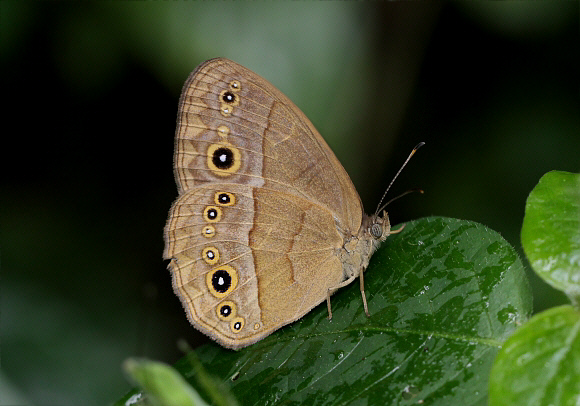
Introduction
Bicyclus is the most numerous of the Satyrine genera in Africa, comprising of about 85 species, 50 of which occur in West Africa. The butterflies are collectively known as Bush Browns, and can be thought of as the sister genus to the Asian Mycalesis.
Bicyclus are characterised by having a regular series of submarginal ocelli on the hindwings, and a pair of ocelli on the forewings, of which the lower ocellus is always the largest. In most species the ocelli are very prominent, but in a few species such as sweadneri they are vestigial, especially in the dry season morph. Most species have very rounded wings but again there are a few exceptions such as zinebi which has a squarish apex on its forewings, and sambulos which has a stumpy tail on the hindwings.
The upperside of istaris is dark brown and devoid of markings except for a large squarish patch of blackish androconial scales near the tornus of the forewing. The underside is subject to variation in the size of the ocelli, and tends to be paler in dry season specimens.
Bicyclus istaris is distributed from Sierra Leone to Sudan, and south to Uganda, western Kenya and northern Tanzania.
Habitats
This species is found in open forest habitats, where it breeds in small glades or along the edges of grassy tracks or roadsides.
Lifecycle
The larval foodplants are grasses, of which several species are probably used by wild populations.
Adult behaviour
Bicyclus istaris rarely visits flowers, but can be found feeding at fermenting fruit on the forest floor.
